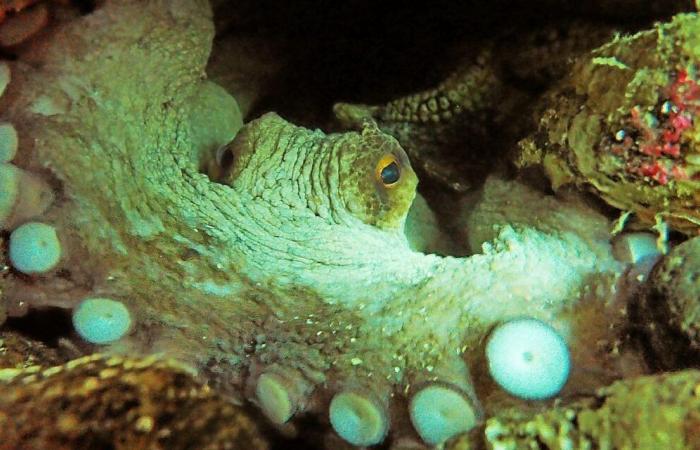When did this Octopus vulgaris, namely the common octopus, appear in force in Brittany?
Philippe Le Niliot: “We saw him return a little over four years ago, through southern Brittany. It is now also present in northern Brittany. The mild winters favored its recruitment in numbers. Octopus does not like water that is too cold in winter. It is estimated that its population has stabilized or even decreased in southern Brittany but that it is holding up rather well in northern Brittany.
How do we explain its massive arrival when it was found mainly in the Mediterranean?
“It finds food in our waters and resists well during mild winters, with a water temperature that does not drop too much. There have already been strong surges in the octopus population in Brittany, such as in 1899 on the island of Batz, where fishermen mobilized to harvest them in large numbers. The animal has a short lifespan, around two years. It dies when it has reproduced the only time in its life, with up to 100,000 eggs for the most fertile.”
Where is it found especially on our coasts?
“In rocky marine environments where it finds hiding places. The octopus does not like the current, we have identified in the Four channel large holes made by the octopuses to protect themselves from the current and which serve as shelter. It is capable of traveling long distances to seek out its prey. Ideally crustaceans and then other molluscs or small fish.”
Does he eat scallops, if he has the opportunity?
“It can do this by opening all kinds of shellfish with its arms and powerful suction cups, before injecting them with a toxin. There are other prey that are more easily consumed. If it evolves in the harbor of Brest, it is rather in the deepest and rockiest areas, while the shells are found in less water. But he is able to travel a little to get his food. The rocky points of the harbor are an ideal habitat for it, with less cold water in winter.”
Where does its reputation as an intelligent or cunning mollusc come from?
“It is a very evolved mollusk but it remains a cephalopod. He may have been feared by the Greeks who associated him with trickery. No doubt these eyes which resemble those of the goat have something to do with it. It is indeed the most evolved of molluscs but objectively, it remains incapable of formulating an informed opinion on the outcome of a football match.”
Are its powerful beak and its venom (a toxin capable of killing an animal the size of a rabbit) to be feared by the fisherman or diver who captures it?
“Not really, he will always try to escape, even if he is very territorial with his peers. There is little risk of bite even though its beak is very powerful. It should be noted that octopus is very popular with seals who live in Brest harbor or on the Molen plateau. Breton fishermen took a little time but are now actively looking for it, thanks to the very active Spanish market for this species.”






